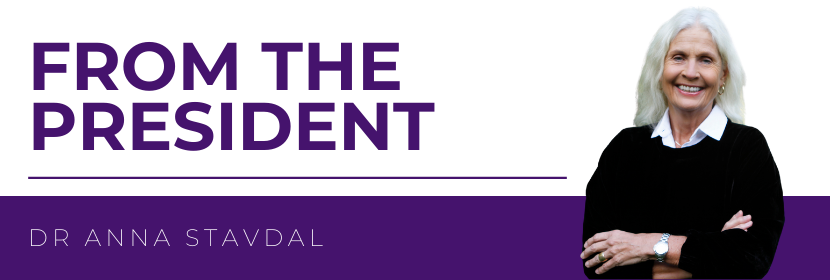From the President: April 2022
 Español
Español Français
中文
Diagnosing Life?
“Life is not a problem to be solved,
but a reality to be experienced.”
Søren Kierkegaard
A Snapshot of Now
We are living through difficult times. The pandemic is not over; in some regions cases are at an all-time high. Military aggression, within and among states, is causing lasting harm. Mental health has always been a central concern in Family Doctors’ daily practice. As so many people suffer and die before our eyes, mental health must remain high on our agenda.
Mental health is also a top Public Health priority, particularly given the reports of the deteriorating situation that the pandemic, social isolation, and shutdowns of social services seem to have triggered in those with chronic psychiatric conditions. We also observe rising rates of depression and anxiety, particularly among young people. In 2018, the WHO approved a new diagnosis, “Prolonged Grief”, and “Prolonged Grief Disorder” was recently added to the latest version of the DSM, the psychiatric classification system.
Value and Potential Pitfalls of Diagnoses
Once a suitable diagnosis is assigned to a patient, the caregiver may be better situated to select treatments that respect the patient’s current needs, capacities, and limitations. Receiving a diagnosis may bring relief to both patient and family, helping to make sense of otherwise frightening and chaotic experiences.
However, the issue of diagnosing is not simple. Insurance companies use diagnoses to determine what they will pay to caregivers, making them crucial to the income of the entire medical profession. The economic survival of ‘BigPharma’ is dependent on physicians’ willingness to diagnose patients with the conditions for which the pharmaceutical companies manufacture treatments. Diagnostic categories also lend themselves to being assessed using expensive technological equipment and to being evaluated digitally using binary algorithms. Clearly, such economic, corporate, and potentially depersonalizing forces exert pressure on medical practitioners to redefine their role as caregivers, making our person centered approach harder, if not impossible.
We might find ourselves routinely applying diagnostic labels, defining as mental illness the ways our patients tackle the complex but normal situational crises of daily life. A caregiver might avoid feeling powerless by labelling as “Prolonged Grief Disorder” any lengthy period of mourning following the unbearable loss of a loved one. After all, a diagnosable dysfunction might be treatable.
If such overdiagnosis takes hold, patients may run the risk of being overtreated. Also, once a diagnosis becomes a label, a patient may face such concrete consequences as diminished employment options, plus a range of emotional burdens, such as shame. Unfortunately, health literacy is not yet so widespread that insight into mental illness has eliminated judgmental, moral condemnation.
Psychiatric labelling has seeped into our daily lives, our shared vocabularies, and popular cultures. Just look how the distinction is vanishing between ‘feeling down’ and having the medical condition of ‘depression’. An obvious cost of linking disease labels to caretaking is the decrease in what is considered ‘normal’, not just within the field of mental health, but in the entire field of medicine.
A Change of Direction
Providing person centered care, the Family Doctor plays a crucial role in counteracting the tendency to medicalize normal, daily life. Sometimes, of course, we can treat—provide concrete interventions that stop the symptoms and allow daily functioning to recommence. But some conditions can`t be ‘cured’, neither by medication nor psychotherapy. Then, continuity of care and support over time is the very best we have to offer—and ‘watchful waiting’, Family Medicine’s most powerful tool. It does, indeed, help. The power of the ‘healing relationship’ has now been validated; look, for example, at the evidence from epigenetic studies documenting that experiences of support, recognition, and belonging can help to strengthen or even restore a state of good health.
Many of our patients’ leave our consulting room without having been diagnosed with a disease but, perhaps, with a view that many crises are experiences from which maturity may grow, and opportunities to hone strategies for meeting future problems.
As we’re woven into community life, we Family Doctors can play a central role in increasing health literacy. We might adapt a well-known phrase and say: “It takes a village to heal a depression.” Formal, and maybe even better, informal, education of close family members, teachers, and employers will strengthen their capacity to empower depressed patients and those who care for them.
Bottom Line
We Primary Caregivers are well-positioned to slow, if not stop, the growing tendency toward the medicalization of daily life. We can resist the temptation to rush to diagnose, rush to medicate, rush to refer. We can continue striving to master the balancing act between ‘watchful waiting’ and ‘early detection’. As patients’ first point of contact with the health care system, we can help them to navigate within it, referring them when necessary to the best level of care. We can make sure that the doctor-patient relationship and the community base remain at the core of how we practice medicine, so that we individualize the treatment we offer while also recognizing and responding to trends as they appear.
We need to help each other, wherever we are in the health system, to increase our awareness of when and how current trends and pressures are impacting our patient-care decisions. We can encourage other specialists to funnel their hard-won knowledge to Primary Caregivers so that we can fine-tune our decision-making about when medicalization is not only appropriate, but life saving.
In short, I wish all of us the wisdom to use diagnostic labels carefully, with insight into culture and context, and empathy for all our patients, and ourselves, as individual persons.
Dr Anna Stavdal
WONCA President